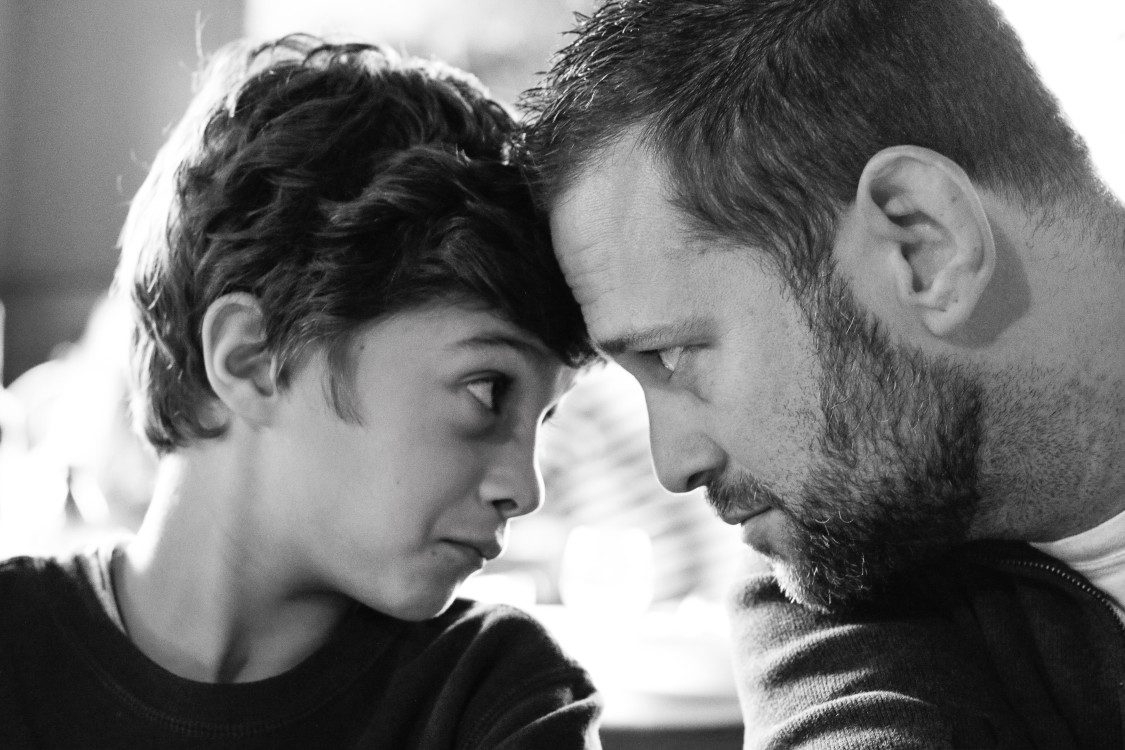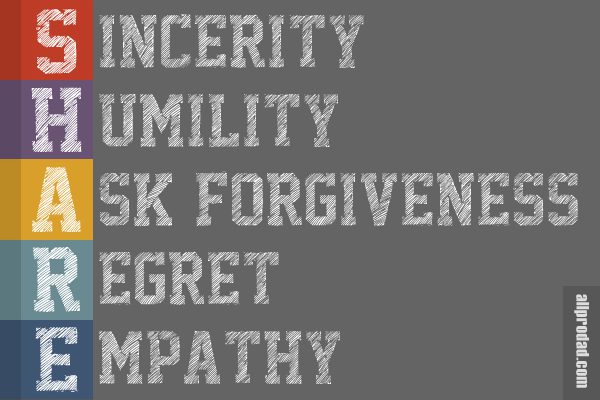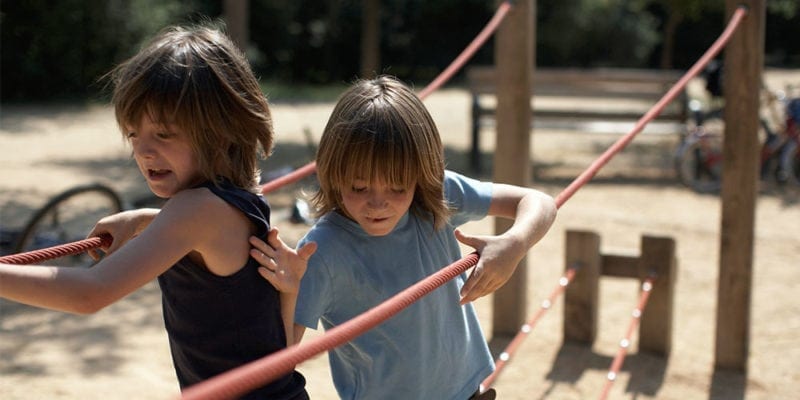Parenting is hard. No one gives you a handbook. If you’re lucky, you had some great role models in your own parents. But even then, you’re still kind of making it up as you go. Inevitably you will make mistakes, sometimes big ones. And here’s the thing: Your kids know it. Granted, you’ve got a little bit of time there in the early stages when they think you’re the smartest person on the planet. But with the advent of Google and new math, they pretty quickly debunk that. So what do you do when you screw up? Are you good at owning up to mistakes?
What about when you yell at your son for getting home at 10:30 and he angrily reminds you that you said 11? Or how about when you promise you’ll be home in time to see the spelling bee, but work runs late, and you miss it? Many of us feel like we can’t say “I was wrong” to our kids because if they know we’re not always right, the jig is up. They may never listen to us again. Or at a minimum, won’t they lose respect for us? No. Owning up to mistakes is actually essential. Here are 3 reasons why you should learn to say “I was wrong” as often as you need to.
1. The truth matters.
Look, I know it’s hard to admit you’re wrong. It’s hard for all of us. But you can’t build anything of substance or significance on deceit. It may work for a while, but it always comes crashing down. The only thing solid enough to build lasting relationships on is truth. Sometimes the truest words you can utter are “I was wrong.”
2. Your kids will do what you do more than they’ll do what you say.
What do you expect your kids to do when they make mistakes? I hope the answer isn’t “cover them up” or “make excuses.” I hope you’d prefer to see them owning up to mistakes and learning from them. One of our most powerful teachers is failure, if we’re humble enough and resilient enough to learn from it. The world needs more people who are courageous enough to make mistakes and learn from them, but they need parents who can show them how. It doesn’t matter how many times you tell your child that failure is OK if you act like it isn’t. Your children will pick up what you model for them.
3. Authenticity builds relationship.
As a parent, you can’t bare your soul entirely. You are not your child’s best friend. You are his or her dad. Still, learning to offer the right amount of transparency goes a long way in building meaningful connections with your child.
The older the child, the more transparent you can be. A 5-year-old may just need to hear, “I’m sorry I yelled. I was wrong. I shouldn’t have done that. Will you please forgive me?” A 16-year-old may appreciate the more nuanced, “I’m sorry I got so upset with you. It’s been a long day, and I took it out on you. That was wrong, and I’m sorry. Will you please forgive me?”
In both cases, though, your honesty opens up the opportunity for the child to extend forgiveness. That’s a powerful gift your child can now offer you, and it creates a sense of ownership in the relationship. The child isn’t just the recipient of what you have to offer him. He actually needs to contribute something to the maintenance of a healthy relationship. In admitting your failure, you’re also coaching your child on how to maintain healthy relationships. That’s invaluable.
Admitting you are wrong is hard, but learning to do so with humility and courage is a gift to your child that can serve him or her for a whole lifetime.
Sound off: Is owning up to mistakes easy or difficult for you? Why?











Huddle up with your kids and ask, “Why is it important to learn from your mistakes?”